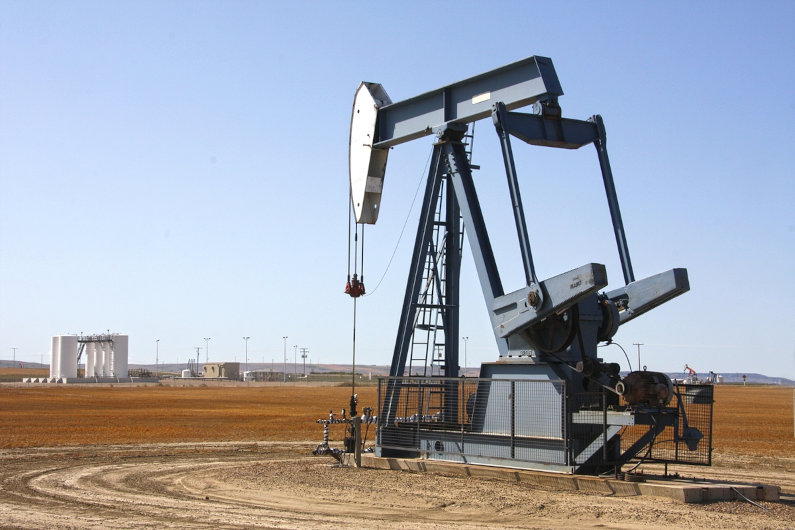In the realm of global economics, oil stands as a pivotal element, shaping the contours of economic landscapes across nations. As you navigate through the intricate dynamics of oil production, understanding its profound impact on economic growth becomes indispensable.
This insight aims to guide you through the complexities of global oil production trends, its ripple effects on energy markets, investment landscapes, risk mitigation strategies, and the essential transition toward sustainable energy—all woven together with the thread of policy implications for oil-producing nations.

Global Oil Production Trends
The landscape of global oil production is marked by a dynamic interplay of technological innovations, geopolitical strategies, and environmental regulations. In recent years, we’ve witnessed a significant shift towards unconventional oil sources, such as shale oil, enabled by advancements in hydraulic fracturing and horizontal drilling technologies. This shift not only alters the geography of oil production—moving it from traditional power centers in the Middle East to new frontiers in the Americas—but also introduces volatility in oil prices due to the different cost structures and production flexibility of unconventional sources.
Simultaneously, geopolitical events, such as trade agreements, sanctions, and conflicts, play a pivotal role in shaping global oil supply chains. For instance, OPEC’s (Organization of the Petroleum Exporting Countries) production decisions can significantly sway oil prices, impacting global economic stability. Moreover, the transition towards a low-carbon economy prompts governments worldwide to implement stricter environmental regulations on fossil fuel extraction and consumption, influencing production costs and market dynamics.
By delving into these trends, you gain insight into the complex mechanisms driving oil production and its implications for global energy security, economic stability, and environmental sustainability. This understanding is crucial for forecasting future market movements and strategizing for economic resilience and growth.
Oil’s Impact on Energy Markets
Oil production fluctuations cast a wide net, affecting energy markets and industries worldwide. These shifts influence everything from the cost of raw materials to energy availability and pricing, thereby affecting economic stability. For instance, a spike in oil prices can increase manufacturing costs, alter transportation expenses, and affect consumer prices, leading to inflationary pressures. Conversely, a dip in oil production can signal energy shortages, impacting industrial operations and economic productivity.
Recognizing these patterns enables industries to adapt, ensuring resilience in the face of change.
Investment Opportunities
Navigating the oil sector’s volatile waters reveals numerous investment prospects. Innovations in extraction technologies, such as fracking and deep-water drilling, open new avenues for exploration and production, potentially offering lucrative returns. Additionally, geopolitical landscapes and regulatory frameworks play significant roles in shaping investment opportunities.
By closely monitoring these elements, investors can identify promising ventures within oil production, leveraging advancements and strategic insights to spur economic growth.
Risk Mitigation Strategies
With opportunities come risks—geopolitical tensions, environmental concerns, and regulatory changes pose significant challenges to oil production. Developing strategies to mitigate these risks is paramount for ensuring long-term stability and growth. Diversification, both geographically and across energy sources, stands as a critical approach. Investing in renewable energy, alongside traditional oil ventures, can cushion the impact of oil market volatility. Moreover, engaging in diplomatic efforts and adhering to environmental regulations enhances resilience, safeguarding investments against unforeseen shifts.
Transition to Sustainable Energy
As the world gravitates toward sustainable energy, oil production plays a dual role. On one hand, it remains a key energy source, driving economic activities. On the other, it serves as a bridge in the transition to renewable sources.
By investing in technologies that reduce the environmental impact of oil extraction and use, and by supporting renewable energy ventures, the oil industry can foster economic growth while minimizing its ecological footprint. This balanced approach ensures a smoother transition to a sustainable energy future.
Policy Implications for Oil Producers
Understanding the policy implications of oil production is critical for oil-producing nations. Effective revenue management, economic diversification, and investments in socio-economic development are essential strategies.
Policies that encourage innovation in oil extraction and promote renewable energy sources can help stabilize economies and spur growth. Furthermore, focusing on sustainable practices ensures long-term benefits, aligning economic objectives with environmental stewardship.
Understanding the impact of oil production on economic growth requires a multifaceted approach, blending insights from global trends, market dynamics, investment strategies, and policy implications.
By navigating these aspects with foresight and strategic planning, individuals and nations alike can harness oil’s potential to drive economic growth while paving the way for a sustainable energy future. This journey, though fraught with challenges, offers a pathway to resilience, prosperity, and environmental harmony.




